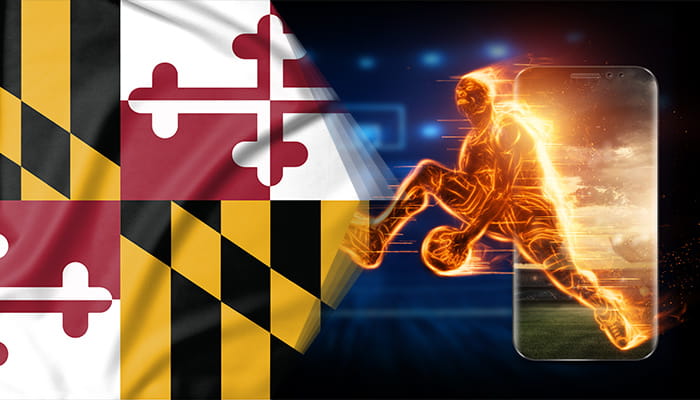Setting the Stage: Maryland’s Ambitious Sports Betting Legislation of 2021
 Maryland lawmakers established the groundwork for a flourishing sports betting sector after a landslide Maryland Senate vote in 2020. Up to thirty licenses for retail sportsbooks and an extra sixty licenses for online sports betting companies were approved by the Act. These licenses were given to horse racetracks, sports arenas, and off-track betting shops in addition to conventional casinos, giving prospective operators a wide range of alternatives. The Maryland Sports Wagering Application Review Commission (SWARC) has the authority to grant up to 107 sports betting licenses in total. But right now, Maryland only has twelve physical sportsbooks and twelve internet sportsbooks.
Maryland lawmakers established the groundwork for a flourishing sports betting sector after a landslide Maryland Senate vote in 2020. Up to thirty licenses for retail sportsbooks and an extra sixty licenses for online sports betting companies were approved by the Act. These licenses were given to horse racetracks, sports arenas, and off-track betting shops in addition to conventional casinos, giving prospective operators a wide range of alternatives. The Maryland Sports Wagering Application Review Commission (SWARC) has the authority to grant up to 107 sports betting licenses in total. But right now, Maryland only has twelve physical sportsbooks and twelve internet sportsbooks.
Representative Jason Buckel of Allegany County has expressed worries regarding the sites of these sportsbooks. He contends that because the majority of the state’s physical sports betting facilities are located in cities and other heavily populated locations, some regions are underserved. The Eastern Shore is one area that doesn’t have enough access to sportsbooks. Buckel noted that many places, especially on the Eastern Shore, have restricted access to sportsbooks. Among the 1.1 million residents in Montgomery County, there is only one sportsbook. The state is full with these underprivileged areas.
Even though sports betting online is becoming more and more common, physical sportsbooks are still in high demand. Bettors can have a more social and anonymous experience when they wager at physical venues. Furthermore, some people favor brick-and-mortar sportsbooks over internet ones because they think the ease of online betting could result in harmful gambling habits. Therefore, increasing the number of physical sportsbooks available can accommodate a wide variety of bettor preferences.
Addressing the Gaps: Delegate Buckel’s Concerns and the Need for Inclusive Access
In August, it was noted that mobile betting platforms dominated with over $250.3 million in bets, while retail sportsbooks contributed only $13.4 million of the over $263.7 million wagered in the state. When it came to winnings, online operators fared better than retail bettors, taking home nearly 10% of wagers, or $24.4 million, while oddsmakers kept 3.5% of the action, or $474,000. Maryland levies a 15% tax on gross sports betting earnings for both brick-and-mortar and internet sportsbooks. The money collected goes toward funding public education for students in grades K–12.
Delegate Buckel will have several obstacles in his quest for additional Maryland retail sportsbooks. According to John Martin, director of the Maryland Lottery and Gaming Control Agency, there was only one bidding time permitted by the state’s sports betting laws, and the application window ended on October 21, 2022. As things stand, the law does not provide for a second enrolment period for prospective operators of sportsbooks.
Navigating Hurdles: Obstacles to Additional Retail Sportsbooks in Maryland
Operators looking to enter the Maryland market are not showing any substantial interest at this time, according to Randy Marriner, a member of SWARC and the chair of the Maryland Lottery and Gaming Control Agency.
Maryland’s sports betting sector is still in its infancy, according to state gaming authorities, and they foresee potential market consolidation. The rivalry for market share is intense because there are currently 12 brick-and-mortar sportsbooks and 12 internet sports wagering sites operating. In addition to allowing smaller online sportsbook operators like Betfred, Crab Sports Maryland, and BetParx, Maryland has drawn major companies like BetMGM, DraftKings, FanDuel, and Caesars Sportsbook.
 By Matt Speakman,
By Matt Speakman,

 Chicago Unveils New Casino Plans with Bally’s
Chicago Unveils New Casino Plans with Bally’s AGS New Slot Game ‘3X Ultra Diamond’ Ranked Number One
AGS New Slot Game ‘3X Ultra Diamond’ Ranked Number One Spain Emerges Victorious in UEFA Euro 2024 Final
Spain Emerges Victorious in UEFA Euro 2024 Final Voter Referendum for Petersburg, Va., Casino Approved in November Election
Voter Referendum for Petersburg, Va., Casino Approved in November Election Maryland Welcomes Betr with License
Maryland Welcomes Betr with License New Jersey DGE Fines Caesars Sportsbook
New Jersey DGE Fines Caesars Sportsbook MGM Prepared to Do Anything to Acquire Entain
MGM Prepared to Do Anything to Acquire Entain Caesars Reveals Plans to Open a Temporary Casino by July Next Year
Caesars Reveals Plans to Open a Temporary Casino by July Next Year Seminole Tribe of Florida Files Replies in the United States Court of Appeals for the District of Columbia
Seminole Tribe of Florida Files Replies in the United States Court of Appeals for the District of Columbia Hollywood Casino Riverboats to Be Moved Inland
Hollywood Casino Riverboats to Be Moved Inland